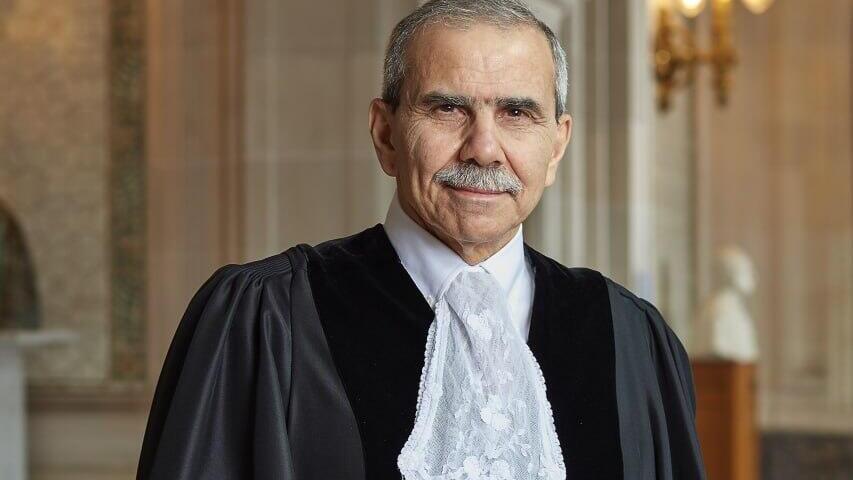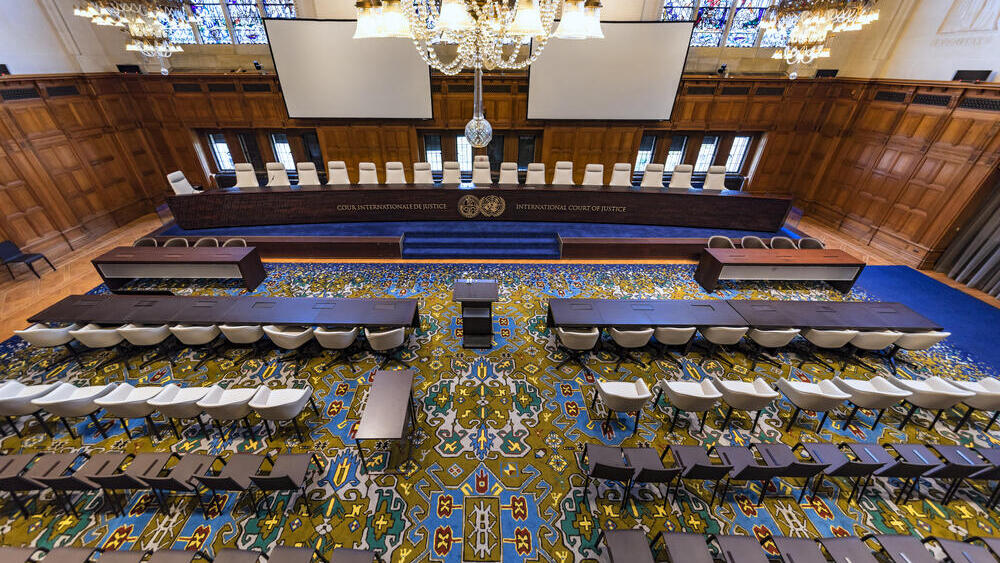Nawaf Salam, the president of the International Court of Justice, which is scheduled to release on Friday an opinion in another politically-motivated case targeting Israel, voted 210 times to condemn the Jewish state when he served as Lebanon’s UN ambassador, and delivered inflammatory speeches accusing “terrorist Jewish organizations” of committing “organized massacres,” UN Watch, an NGO monitoring the actions of the United Nations and an advocate for Israel, said in a report published on Thursday.
Israel considered appealing against his appointment in light of his past conduct but decided against it because of the anti-Israel sentiment prevailing in the international judicial body, a decision that has raised some questions because of Salam's obvious bias.
Salam first joined the court in 2018 after completing an 11-year term as Lebanon's UN ambassador and was appointed president in February of 2024.
The ICJ will publish an advisory opinion on Friday, that is expected to conclude that Israel occupies the West Bank in violation of international law. The opinion was requested by a Palestinian-sponsored resolution of the UN General Assembly.
UN Watch contends in its report that Salam is legally disqualified from sitting in judgment on the two cases related to Israel, under the clear rules of the ICJ Charter.
Among examples cited in the report were statements made by the ambassador in 2008, including accusations that "Jewish terror organizations" carried out "brutal acts of massacre." He also said that "the supreme Zionist regime was pursuing a plan for ethnic cleansing by terror and organized massacres."
In 2009, he told the UN General Assembly that for "far too long the war criminals (in Israel) enjoyed immunity. In 2014, he accused Israel of committing crimes against humanity and, in 2016, accused Israel of apartheid.
UN Watch said Salem as his county's envoy to the UN repeatedly turned his back on the victims of human rights violations and sided with oppressive regimes including in Iran, He voted against all 11 General Assembly resolutions condemning violations by the Iranian regime against its own citizens.
" As civil war was breaking out in Syria in April 2011, Salam used his seat on the Security Council to block a collective press statement from the council that would have condemned the Syrian regime for attacking civilian protesters. Salam expressed support for Syrian dictator Bashar Assad’s “reforms,” the report said.
"In October 2011, Salam abstained on a Security Council resolution that would have condemned Assad’s brutal crackdown on protesters. The abstention provoked Lebanese politicians to call for Salam’s resignation. Salam subsequently refused to support seven UN General Assembly resolutions that condemned the Assad regime for atrocities against civilians, instead voting to abstain."




